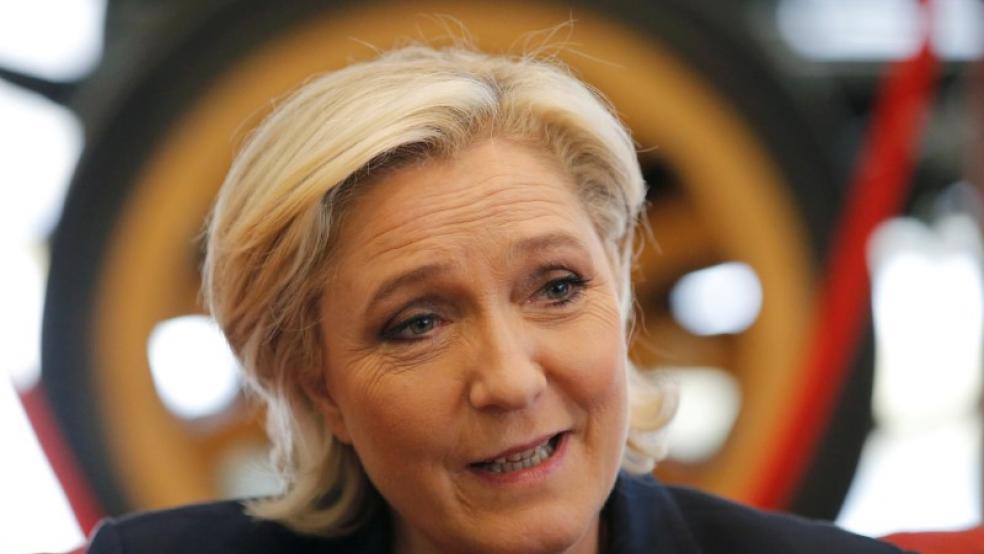The French, along with the rest of Europe, were on the edges of their seats before the American elections last autumn: Who will it be—a right-wing populist disrupter or a centrist favoring liberal economics, open borders, global institutions, and a foreign policy that rests on longstanding alliances?
Now it’s our turn to watch and wonder as the first round of France’s presidential elections approaches. While numerous contenders will be on the April 23rd ballot, there are two names to watch. One is the Front National’s Marine Le Pen, a vigorous nationalist and the closest the French have to Donald Trump. The other is Emmanuel Macron, a centrist defector from François Hollande’s socialist government who has surged swiftly to the fore after creating his own political movement a year ago called, En Marche!
Related: Macron Consolidates Lead Over Le Pen in French Election Polls
The winner will be setting the political, economic and cultural course for France and perhaps the rest of Europe and its allies for years to come.
The emergence of these two as front-runners follows months of uncertainty and some unexpected political casualties. Now the opinion surveys are becoming a lot clearer. A Harris Interactive poll released Thursday has Macron taking 26 percent of the first-round tally to Le Pen’s 25 percent. That’s a gain of 6 percentage points for the 39-year-old Macron in the past two weeks.
In a May 7 runoff between Macron and Le Pen, which seems extremely likely, Macron will likely trounce Le Pen, 65 percent to 35 percent, the Harris poll indicates. But French politics have proven as volatile as America’s during this campaign season. It’s far too soon to count Le Pen out.
There’s a lot at stake in the French results for Americans. Starting at the top, the strength of the trans–Atlantic alliance hangs in the balance. While Macron is a staunch believer in the European Union, Le Pen is radically opposed to it—and the euro, too. Many analysts assert that if she is the Élysée Palace’s next resident, it’s the end of the European project altogether.
A splintering Europe is a weaker Europe, which is the last thing Washington needs to maintain global security. If the Trans–Atlantic Trade and Investment Partnership dies along with its Pacific counterpart, the U.S. goal of a unified trade regime based on free-market principles will come to nothing. The alternative will be a pasta bowl of separately agreed bilateral accords--a Commerce Department nightmare. A divided Continent will complicate Washington’s trans–Atlantic ties economically.
Related: Dollar Rises as Euro Dips on French Election Development
On Monday, the EU announced in Brussels that members agreed to institutionalize joint military training—a move that would please the Pentagon. If Le Pen goes to the second round and wins, that deal is off the table. De Gaulle-like, she’s on the record promising to pull France out of the NATO alliance. Along with this, she favors a Trump-style détente with Russia, which would complicate both US foreign policy with a core ally, but also American national security. Le Pen received “a hefty loan from a Russian bank, and Mr. Macron’s organization has suffered more than 4,000 hacking attacks,” The Economist reported.
Like other right-wing populists in Europe—and our own president—Le Pen trades on insecurities. Horrible terrorist attacks that eluded France’s security system, a chronically sluggish economy and persistently high unemployment—25 percent of French youth are unemployed—have turned France into the most pessimistic of the industrial democracies, a recent survey shows. Such conditions are just right for a candidate fanning anxieties about immigrant populations, global institutions, and free trade.
Even though Donald Trump eschews multinational trade deals in favors of bilateral deals, a Le Pen victory this spring would be bad news for the U.S. And even though Trump is also a disrupter, his America First campaign along with his border tax proposal could alienate a France First nationalist like Le Pen.
Related: Kremlin Denies French Election Meddling, Macron Camp Renews Charges
Macron is 180° Le Pen’s opposite on all the core questions. He backs the basic institutions supporting the postwar order, and his economics are neoliberal centrist. He pledges to cut the corporate tax rate from 33 percent to 25 percent while giving companies permanent breaks on payroll taxes. He’ll also exempt the corporate sector from some of France’s famously considerable social levies.
Macron’s a fresh face in a field of old-timers and, asserting that France’s middle class has been neglected, promises to make reviving it his priority. But Macron’s not superman. Last week he issued a “manifesto,” and it exposes potential vulnerabilities. His tax cuts are unconvincing, some analysts say, because they’re effectively tied to a European Union pledge to keep the budget deficit below 3 percent of GDP.
Macron promises to bring France’s jobless rate down from 10 percent to 7 percent—impressive, except that he gives himself five years to get it done. He’s an austerian who cuts himself some slack, but austerity doesn’t play too well among a lot of voters in France (or anywhere else on the Continent). This election matters far beyond France’s borders, and there are no sure things these days.






